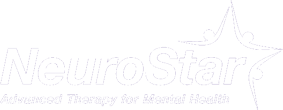Navigating college life can be mentally and emotionally overwhelming. Students today face constant academic pressure, financial burdens, and social expectations. These stressors have significantly increased mental health issues among young adults, especially depression and anxiety. While many universities offer counseling centers, the demand often exceeds capacity. Students are left waiting weeks—or even months—for support. This delay can worsen symptoms and impact academic performance. Access Health Services recognizes these challenges and offers a timely, effective, and non-invasive solution: TMS therapy for college students. It’s a modern approach that fits seamlessly into student life while addressing deep-rooted emotional struggles.
Rising Mental Health Challenges Among Students
Mental health conditions among college students are more common than ever. According to national surveys, one in three college students experiences symptoms of anxiety or depression during their academic years. These challenges don’t just impact their emotions—they affect concentration, relationships, and grades. Many students hesitate to ask for help due to the stigma that still surrounds mental health, especially in competitive college environments. Others worry that receiving treatment could label them as weak or unstable. This silence keeps students from getting the support they need, making it crucial to normalize mental health care and make treatment accessible and stigma-free.
Why Traditional Therapy Isn’t Always Enough
Although college counseling centers offer valuable services, they’re often overwhelmed with demand. Students might face delays of several weeks before getting an appointment. Even when counseling is available, many students hesitate to take antidepressants or anti-anxiety medications. Concerns include side effects like drowsiness, weight gain, and difficulty focusing—issues that can worsen academic and social performance. In some cases, students may have already tried therapy and medication without much relief. When traditional approaches fall short, students need a solution that’s effective, accessible, and free from unwanted side effects. That’s where TMS therapy becomes an important treatment option.
How TMS Offers a Unique Solution for Students
Transcranial Magnetic Stimulation (TMS) is an FDA-approved, drug-free treatment for depression and anxiety. It works by using magnetic pulses to stimulate underactive parts of the brain that control mood. TMS is non-invasive, meaning no surgery, no sedation, and no medications are involved. This makes it an ideal choice for students who want relief without daily pills or difficult side effects. Each session lasts around 20 minutes and can be scheduled before or after classes. Many students begin to see improvements within a few weeks, regaining focus, motivation, and emotional stability.
Key benefits of TMS therapy for students include:
- No systemic side effects or medication interactions
- Minimal disruption to academic schedules
- Improved concentration, energy, and mood
- Long-term symptom relief
Common Conditions TMS Therapy Can Help in College Students
TMS therapy has shown proven results in treating several mental health disorders that are common among students. These include:
- Generalized Anxiety Disorder (GAD): Persistent, excessive worry that interferes with daily functioning
- Major Depressive Disorder (MDD): Ongoing sadness, hopelessness, and lack of interest in activities
- Obsessive-Compulsive Disorder (OCD): Intrusive thoughts and repetitive behaviors that disrupt academic and social life
- Anxious Depression: A combination of depression and anxiety symptoms, making it harder to respond to typical treatment options
By addressing these conditions directly at the neurological level, TMS offers a modern path to improved mental health.
A Success Story from a College Student (Example)
Consider the journey of a fictional student named Maya. In her second year of college, Maya began experiencing intense anxiety and depression following a series of academic failures and a breakup. She became withdrawn, missed classes, and struggled to stay focused. After trying talk therapy and being prescribed medication, Maya still saw little improvement. That’s when she discovered TMS therapy at Access Health Services in College Park, MD. After just a few sessions, she began feeling more motivated and was able to return to class with greater confidence. Over time, Maya completed the semester successfully and began thriving again—without medication.
How to Access TMS Therapy in College Towns
If you’re a college student—or a parent of one—seeking effective mental health treatment, TMS therapy is available at our College Park and Lanham locations. These clinics are easily accessible to students attending:
- University of Maryland – College Park
- Bowie State University
- American University
- Howard University
- University of the District of Columbia
Access Health Services offers flexible scheduling, compassionate care, and private treatment plans tailored to each student’s needs. We also provide telehealth consultations, so you can begin the process from the comfort of your dorm or home. To get started, simply call us at 202-499-4300 or visit our TMS Therapy page a
Encouraging Students to Break the Stigma
Mental health issues do not define a person’s intelligence, value, or future success. In fact, seeking help is a sign of strength. TMS therapy offers a life-changing opportunity for college students who feel stuck, tired, or hopeless. If you’ve tried traditional therapy or medication without success—or simply want a non-drug alternative—TMS therapy might be the breakthrough you need. Don’t wait until things get worse. Get the help you deserve now, and take back control of your college experience.



